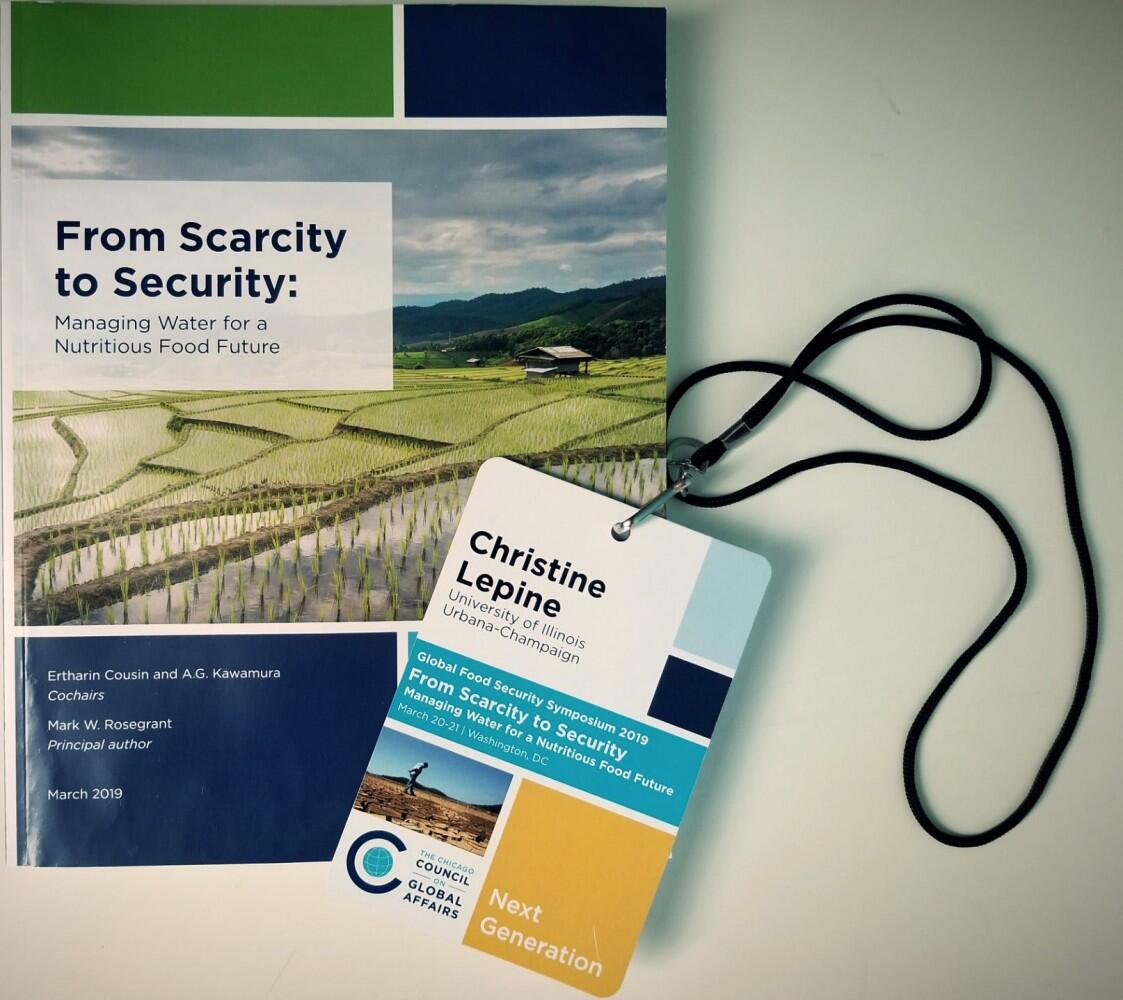ACES student Christine Lepine participates in 2019 Next Generation Delegation

The Chicago Council of Global Affairs hosted the annual Global Food Security Symposium in Washington, D.C. on March 20-21. The symposium provides a platform for discussion on the U.S. and the international agriculture community’s progress towards food security.
This year’s Global Food Security Task Force Report, “From Scarcity to Security: Managing Water for a Nutritious Food Future” acknowledges that changing weather patterns, urbanization, and population growth have already put a strain on global agricultural production systems with global water insecurity projected to increase with demand. Water insecurity leaves populations, in both developed and developing worlds, vulnerable to hunger and poverty, with the potential for severe consequences. However, if the global community can address water insecurity with urgency, collective action, and innovative water management, then solutions are possible.
Christine Lepine, an M.S. student in the Department of Natural Resources & Environmental Sciences, had the honor of being selected as a 2019 Next Generation Delegate. The delegation consisted of 20 students from across the globe, ranging from those working on bachelor’s degrees to Ph.D. candidates, representing colleges and universities from five countries. Recipients had backgrounds in agricultural and environmental science, post-conflict peacekeeping, entrepreneurship, international law, economic and sustainable development, and global health and development. The greatest strength of the delegation was the diversity brought to the table, resulting in an enthusiastic and passionate discussion on the future of water.
Christine reflects:
It is relevant that as I reflect on my recent attendance to the symposium that today (March 22nd) is World Water Day, the annual UN observance which advocates for the sustainable management of freshwater resources and water rights for all. Today over one-third of the global population lives in areas where water is scarce and by 2050 over half of the planet’s predicted population of nine billion people will be experiencing water stress. Water is a vital resource, and our collective failure to value and protect it as such will have dire consequences. Yet, the previous two days have been unexpectedly invigorating and inspirational. I had the privilege to be seated with the next generation of innovators of change, absorbing the stories of people who have overcome great challenges, and to hear perspectives from leaders in science, industry, and technology.
One of the most significant sessions featured at the event was a storytelling period answering the question, “What makes water personal to you?” As scientists we collect, analyze, interpret, and disseminate data. As researchers, we can cite statistics straight from the Task Force’s report, such as “The freshwater necessary to produce crops and livestock accounts for the largest percentage (71%) of water usage among all sectors” or “Global demand for water is generally projected to increase 30-50% by 2050.” Factual statements are impactful, but are they enough to elicit global action? During this “solution session” insightful and profound narratives were shared by Chicago Council leaders, Next Generation delegates, and audience members (available for viewing starting at 1:45:00 on the video here). These narratives served as a reminder that it is our personal experiences that motivated us to embrace problems and search for solutions in the first place; that it will take science but also our own stories to open dialogues, make connections, and inspire change. So in the days that follow the release of the task force’s report and in light of World Water Day, I’d invite everyone to take a moment and reflect on, “What makes water personal to you?”